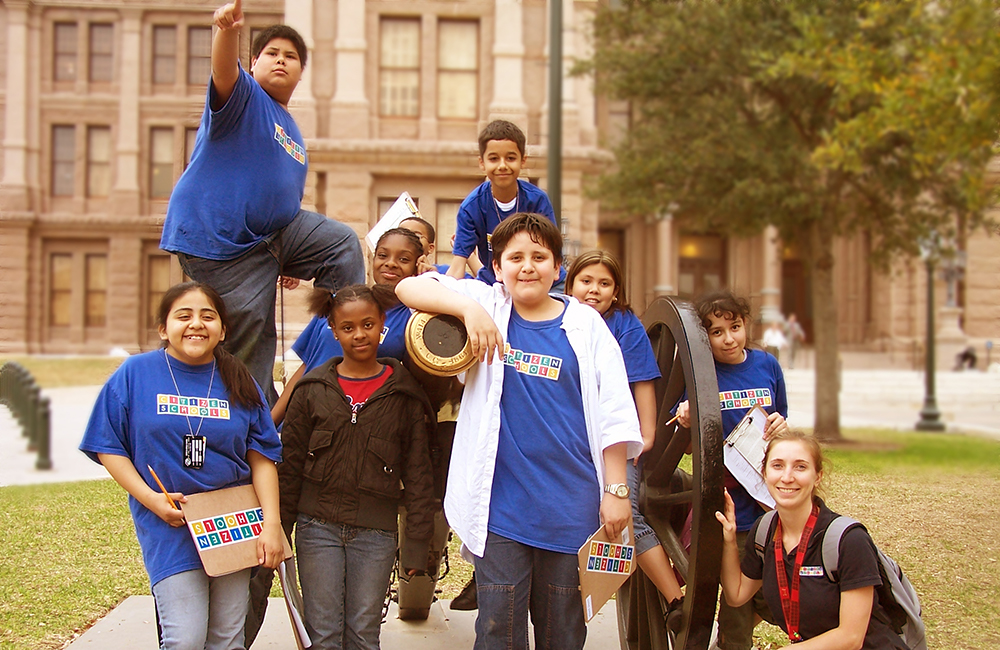Middle/Secondary


Middle/Secondary
What it does
Citizen Schools partners with 20 middle schools to enhance and expand the learning day for about 3,500 middle school students in eight urban districts in California, Massachusetts, New York, and North Carolina. Middle school interventions can capture students who might otherwise disengage by high school, as well as support them in the transition to high school. An additional three hours in the school day gives students time for homework, learning study skills, and experiential field trips.
Community volunteers teach elements of their professional experience, while AmeriCorps Teaching Fellows provide academic support. Each semester culminates with a community event called WOW! where students make presentations and teach back what they’ve learned to family and friends. Citizen Schools is a whole-school model: every student in the school receives the same services so that no students fall through the cracks.
How effective is it
Citizen Schools participants are more engaged and make greater academic gains in middle and high school than matched peers, gaining at least three additional months of math skills in a year. Some 71% graduate from high school on time, compared to 59% of matched peers. Citizen Schools estimates the program costs about $6,000 per student to participate and receive three additional school hours per day of instruction/enrichment activities over a one year period. We know that even the best programs don’t have a 100% success rate, and there are always students who might have graduated on their own. Therefore, using Citizen Schools’ own success rates and program costs, CHIP estimates their cost for a student to actually graduate (who otherwise wouldn’t) as $50,200. Compare that to an estimated $623,000 in social welfare costs and lost income/tax revenue per high school dropout to understand Citizen School’s ‘bang for buck’: a savings of over $12 for every $1 spent on the program.
How you can help
You can donate any amount to Citizens Schools at the national or state level. Or, you can get involved in other ways: donors can support innovation and evaluation by funding new studies or pilot initiatives. Additionally, corporate partnerships enhance sustainability and allow scaling to new cities by providing a consistent supply of volunteer mentors.
Personalize this project
If Citizen Schools is not in your area, similar programs include Spark in middle school and Genesys Works in high school. Funders interested in policy can advocate for issues that Citizen Schools addresses, including extended learning time, quality Career and Technical Education (CTE), and rigorous curricula for all students. Organizations working on these issues include the Association for Career and Technical Education and Jobs for the Future, particularly the Students at the Center initiative.
